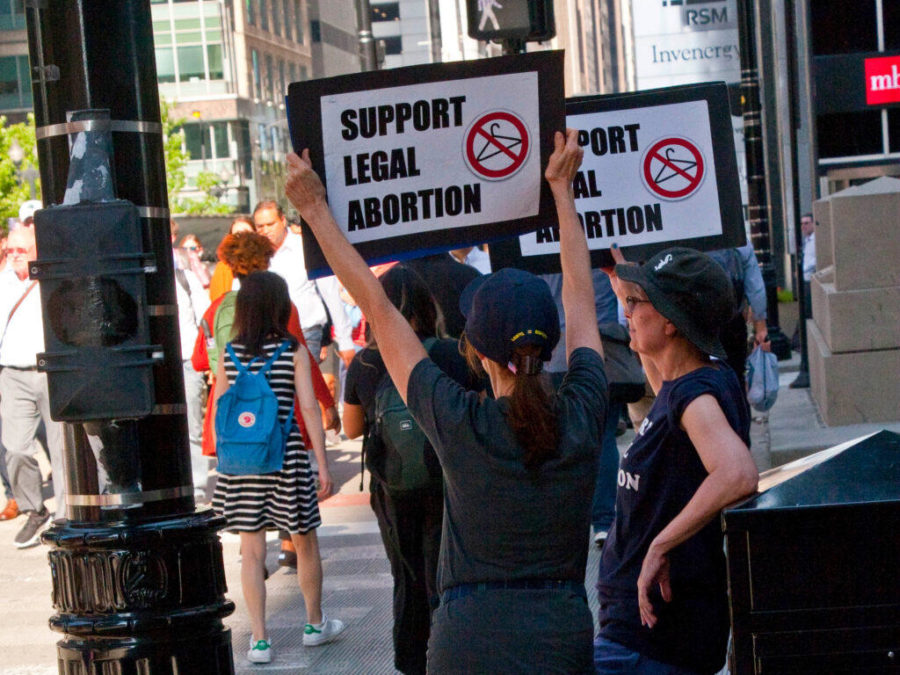Texas Must Rethink its Abortion Law
People protest SB8 in Texas.
If we’ve learned anything over the past year and a half, it’s to not take anything for granted. This includes a stable climate, freedom of speech, and even in-person socialization. However, one thing we commonly take for granted is the choice to become parents.
SB8, or the Texas Heatbeat Act, bans abortions six weeks after conception, when a fetal heartbeat is often detected. It is the most severe abortion law to date and also the first law enforced by private individuals through civil lawsuits; under SB8, Texan citizens have a financial incentive to sue anyone who aids an abortion in any way, from the doctor who performed the abortion to the oblivious Uber driver who drove a woman to Planned Parenthood. If the plaintiffs (accusers) are successful, they are entitled to cash judgments of $10,000 from the woman they sued. If the accusers lose, they do not need to pay the defendant’s legal costs. Private citizens do not need to be connected to the woman being sued. Additionally, SB8 does not make exceptions for cases of rape or incest.
In Texas, the new abortion law is devastating for the women who will be forced to carry out pregnancies against their will. Most women don’t find out about their pregnancy before six weeks, and under SB8, they won’t even have the chance to abort their pregnancy. SB8 is unethical because the law places disproportionate blame on women for unintentional pregnancies. About a half of all pregnancies are unintentional, but what many don’t realize is birth control failure, lack of sexual education, and rape are situations where women are vulnerable. By restricting a woman’s right to have abortions, the Texas abortion law automatically places the women in the role of a perpetrator—this gross and unjust violation of women’s rights is a clear indicator of ingrained sexism in Texas.
A woman might think that her period is two weeks late, only to discover that she is six weeks pregnant. Additionally, many women already have irregular periods from age, illnesses, medications, weight changes, or extreme sports, such as endurance running and gymnastics, which can further contribute to the woman’s ignorance of possible pregnancy. Pregnant women have a slim to nonexistent chance of receiving a legal abortion in Texas—they may not even be aware of their pregnancy until it is too late.
This law also disproportionately affects low-income women because it’s not financially feasible for them to travel to another state for an abortion. According to a study conducted by The Guttmacher Institute, a reproductive rights organization, SB8 will shut down multiple abortion clinics in the state, which will increase the one-way driving distance to an abortion clinic twenty times—from 12 miles to 248 miles.
A common misconception is that banning abortions will keep abortions from happening; in reality, SB8 only bans safe abortions. We need to accept that abortions, illegal or not, will occur in this world no matter what. When women are deprived of the option to have a safe abortion, they can and will go to unsafe measures to rid the unwanted pregnancy. While a woman can go through with the pregnancy and put the baby up for adoption, what many neglect to think about is how pregnancy permanently alters your body and can cause things such as stretch marks and loss of bladder control. So yes, while a woman could face the risks of pregnancy and have the baby adopted, she may never recover from the physical and psychological trauma.






